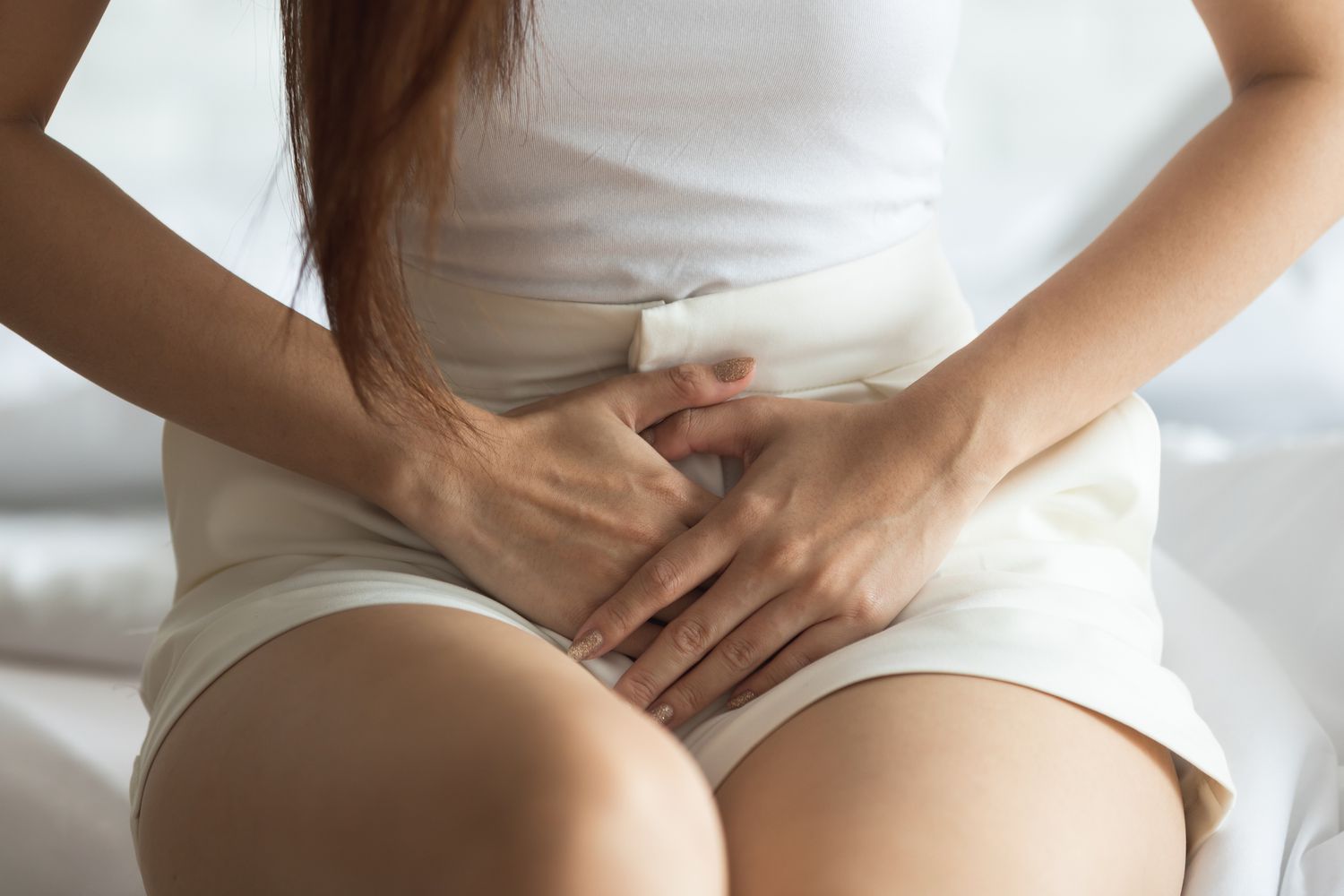
Safe and Natural Remedies for Vaginal Discomfort During Periods and Pregnancy
Vaginal discomfort during periods and pregnancy is common but can be managed safely with natural remedies. Warm compresses, hydration, probiotics, coconut oil, herbal remedies, and sitz baths provide relief. Wearing breathable cotton undergarments, practicing yoga, and maintaining hygiene further reduce irritation. While these natural approaches promote comfort and health, persistent or severe symptoms require medical attention.
💪 Fitness Guru
38 min read · 27, Sep 2025

Introduction
Vaginal discomfort is something almost every woman experiences at some point, especially during periods and pregnancy. It may include itching, dryness, irritation, burning, or mild pain. While many turn to medications, natural and safe remedies often provide effective relief without side effects.
Our bodies go through hormonal changes during menstruation and pregnancy, which can disturb vaginal pH, increase sensitivity, and even cause infections. By combining natural remedies, hygiene practices, and mindful care, women can manage discomfort in safe and sustainable ways.
In this article, we’ll explore why vaginal discomfort happens, natural solutions, daily practices, and myths that often confuse women about vaginal care. Vaginal discomfort is something most women experience at different stages of life, particularly during menstruation and pregnancy. These phases bring unique hormonal changes and physical adjustments that can lead to irritation, dryness, itching, swelling, or pain in the vaginal area. While these issues are common, they can be distressing and affect day-to-day comfort. Many women prefer safe, natural approaches to reduce discomfort instead of relying solely on medications, especially during pregnancy when sensitivity is higher. Fortunately, there are gentle remedies available that help soothe discomfort, promote healing, and maintain intimate well-being.
Menstruation is a time when hormonal fluctuations and increased sensitivity often cause vaginal dryness, cramping, or soreness. The use of commercial sanitary products containing synthetic fragrances, dyes, or chemicals can further irritate delicate skin, resulting in rashes or itching. Likewise, pregnancy brings about increased discharge, hormonal surges, and greater pressure on the pelvic region, which sometimes leads to infections, itching, or general discomfort. Understanding how to use natural remedies during these periods of vulnerability helps women feel more at ease while supporting their reproductive health in a holistic way.
One of the most effective remedies for soothing vaginal discomfort is maintaining proper hygiene with natural products. Harsh soaps and chemical-based washes can disrupt the natural vaginal pH, leading to irritation or even infections. Instead, using lukewarm water for gentle cleaning is often enough to maintain freshness. If cleansing products are desired, mild, fragrance-free, and pH-balanced options derived from natural ingredients such as aloe vera or chamomile are safer choices. Aloe vera gel, in particular, is known for its cooling and anti-inflammatory properties, which can provide relief from itching or soreness without causing harm.
Warm sitz baths are another time-tested natural practice. Sitting in a shallow tub of warm water for ten to fifteen minutes can ease pain, reduce swelling, and promote blood flow in the pelvic region. Adding soothing agents like a few drops of lavender essential oil, a handful of Epsom salt, or even chamomile tea bags to the water enhances the calming effect. For women who experience painful cramps during menstruation or swelling during pregnancy, sitz baths offer both relaxation and gentle healing.
Coconut oil is an easily available natural moisturizer that can be very helpful for vaginal dryness and irritation. Applying a small amount of pure, organic coconut oil externally provides lubrication, reduces friction, and forms a protective barrier against bacteria. Its antifungal and antibacterial properties make it particularly useful for preventing infections during pregnancy, when vaginal discharge is naturally increased. Unlike chemical creams, coconut oil is gentle, soothing, and safe for most women. Similarly, natural oils like olive oil or vitamin E oil can also provide nourishment to delicate skin, helping it remain supple and irritation-free.
Hydration plays a powerful role in maintaining vaginal comfort. During both periods and pregnancy, the body undergoes fluid shifts and hormonal changes that may cause dryness or swelling. Drinking adequate amounts of water helps regulate these changes, flushing out toxins and maintaining healthy mucous membranes. Herbal teas such as chamomile, ginger, or peppermint not only support hydration but also relieve cramps and promote relaxation. These natural drinks can replace caffeine-heavy beverages, which sometimes worsen discomfort.
Diet also significantly affects vaginal health. Consuming foods rich in probiotics such as yogurt, kefir, or fermented vegetables promotes the growth of beneficial bacteria, which helps maintain vaginal pH and prevent infections. A diet high in leafy greens, whole grains, fruits, and nuts supports hormonal balance and reduces inflammation. During periods, iron-rich foods like spinach, lentils, and pumpkin seeds help replenish blood loss and keep the body energized, indirectly reducing fatigue and discomfort. During pregnancy, nutrient-dense foods rich in omega-3 fatty acids, calcium, and vitamins support both the mother’s and baby’s health while lowering the likelihood of inflammation or irritation.
Wearing breathable clothing is another simple but often overlooked natural remedy. Tight synthetic fabrics can trap heat and moisture, creating an environment where infections thrive. Instead, cotton underwear and loose-fitting clothing allow airflow, reducing sweat and irritation. During periods, frequent changing of sanitary pads or tampons is essential, while for pregnant women, using soft, fragrance-free panty liners can help manage increased discharge without causing rashes.
Herbal remedies are also widely valued for their gentle yet effective healing properties. Calendula, known for its anti-inflammatory qualities, can be used in creams or diluted oils to reduce redness and soreness. Witch hazel, when applied externally in diluted form, helps soothe swelling and provides cooling relief. Neem, a traditional natural remedy, has antifungal and antibacterial properties that can be helpful for preventing infections. These herbs, when used in safe and moderate amounts, support natural healing processes without interfering with the body’s delicate hormonal balance.
Stress management is another factor directly linked to vaginal comfort. Stress increases cortisol levels, which in turn can disrupt hormonal balance, intensify cramps, and make the body more susceptible to irritation. Natural stress-relieving practices like yoga, meditation, breathing exercises, and gentle walks help calm the mind and improve circulation in the pelvic area. Pregnant women, in particular, benefit from prenatal yoga or guided relaxation, which not only soothe the body but also promote emotional balance during this transformative phase.
Sleep is also a natural remedy that should not be underestimated. Adequate rest allows the body to regulate hormones, repair tissues, and fight infections. Positioning during sleep can also provide comfort—pregnant women often feel relief by lying on their side with a pillow placed between the knees, which eases pelvic pressure. During menstruation, using a heating pad on the lower abdomen while resting can reduce cramps naturally and improve sleep quality.
It is equally important to avoid irritants that worsen vaginal discomfort. Chemical sprays, scented wipes, and douches may promise freshness but often strip away natural protective bacteria. Instead, relying on natural remedies ensures the body maintains its own defense system without unnecessary interference. Similarly, reducing intake of processed foods, excessive sugar, and spicy items can prevent yeast overgrowth and inflammation.
Natural remedies are most effective when used consistently and in balance with healthy lifestyle habits. However, it is essential for women to pay attention to persistent or severe symptoms. If discomfort includes unusual discharge, foul odor, intense itching, or sharp pain, medical advice should be sought promptly, as these may indicate infections that require professional care.
Ultimately, the goal of using safe and natural remedies for vaginal discomfort during periods and pregnancy is not only relief but also empowerment. By turning to simple, gentle solutions such as hydration, warm baths, natural oils, herbs, diet, stress management, and mindful hygiene, women can experience greater comfort and confidence during these sensitive times. These remedies honor the body’s natural rhythms and encourage balance without unnecessary side effects. Choosing such approaches helps women embrace menstruation and pregnancy with resilience, ease, and a deeper connection to their overall well-being.
Understanding Vaginal Discomfort
Vaginal discomfort can appear in different forms during periods and pregnancy.
During Periods
- Hormonal shifts can cause dryness or irritation
- Use of pads/tampons may lead to rashes
- Excess moisture from blood flow can trigger itching or infections
During Pregnancy
- Rising estrogen levels increase discharge
- Vaginal tissues become more sensitive
- Higher risk of yeast infections due to hormonal changes
Common Signs of Vaginal Discomfort
- Itching or irritation
- Burning sensation
- Abnormal discharge (thick, smelly, or unusual color)
- Redness or swelling
- Pain during urination or intimacy
While some discomfort is natural, persistent or severe symptoms should be checked by a doctor.
Causes of Vaginal Discomfort
- Hormonal Changes – Estrogen fluctuations during cycles or pregnancy affect lubrication and pH balance.
- Poor Hygiene – Prolonged use of pads/tampons or harsh soaps can cause irritation.
- Infections – Yeast infections and bacterial vaginosis are more common during these phases.
- Synthetic Products – Scented pads, douches, or tight synthetic underwear can trigger irritation.
- Stress & Diet – High sugar intake, stress, and dehydration worsen symptoms.
Safe and Natural Remedies for Period-Related Discomfort
1. Warm Sitz Bath
Soak in lukewarm water with a pinch of rock salt or neem leaves. This soothes itching and reduces bacteria naturally.
2. Aloe Vera Gel
Apply fresh aloe vera around the vaginal area to relieve irritation and redness. Choose pure gel without added chemicals.
3. Coconut Oil
Its antifungal and moisturizing properties help relieve dryness and itching. Apply a thin layer externally.
4. Herbal Teas (Chamomile, Ginger, Fennel)
These reduce period cramps, relax muscles, and indirectly ease vaginal discomfort.
5. Cotton Underwear
Switch to breathable, soft cotton to prevent rashes and allow airflow. Avoid tight jeans or synthetic fabrics.
6. Menstrual Hygiene Practices
Change pads/tampons every 4–6 hours. Opt for unscented, chemical-free menstrual products.
Safe and Natural Remedies for Pregnancy-Related Discomfort
1. Probiotic-Rich Foods
Yogurt, kefir, and fermented foods maintain healthy vaginal flora and prevent yeast infections.
2. Hydration
Drinking plenty of water helps flush toxins and keeps natural discharge healthy.
3. Coconut Water
Balances pH naturally and soothes irritation.
4. Neem & Turmeric Wash (Mild Infusion)
Boil neem leaves or turmeric in water, let it cool, and use as an external wash for relief from itching. (Never insert inside.)
5. Olive or Coconut Oil Massage
For external dryness and discomfort, natural oils soothe without chemicals.
6. Comfortable Clothing
Loose cotton dresses and breathable underwear prevent sweating and friction.
Daily Practices to Prevent Vaginal Discomfort
Morning Routine
- Drink warm lemon water to flush toxins
- Light yoga or stretching to improve circulation
- Wear fresh cotton underwear
Midday Routine
- Stay hydrated with water or coconut water
- Eat probiotic-rich meals (curd, buttermilk, sauerkraut)
- Avoid long hours in tight clothing
Evening Routine
- Take a lukewarm sitz bath if feeling itchy or sore
- Apply aloe vera gel or coconut oil externally for moisture
- Practice relaxation (deep breathing, meditation) to reduce stress
Weekly Habits
- Include garlic, turmeric, and leafy greens in meals
- Do mild exercise or prenatal yoga (during pregnancy)
- Ensure proper sleep schedule
- Avoid excess caffeine, sugar, and junk food
When to Seek Medical Help
Natural remedies are helpful, but consult a doctor if you notice:
- Persistent itching or burning
- Thick, cottage-cheese-like discharge (yeast infection sign)
- Strong fishy odor (possible bacterial infection)
- Painful urination or bleeding outside of periods
- Severe discomfort during pregnancy
Myths About Vaginal Care: Busted!
“You need to use special scented washes daily.”
→ False. The vagina is self-cleaning. Use mild water and avoid harsh soaps or perfumes.
“Discharge during pregnancy is abnormal.”
→ Not true. Increased discharge is normal unless it has a bad smell or unusual color.
“Only medicines can cure vaginal itching.”
→ Wrong. Many mild cases improve with natural remedies like probiotics, aloe, or sitz baths.
“Tight underwear is harmless.”
→ False. Tight synthetic underwear increases sweating and infection risk.
“Periods always cause infections.”
→ No. Infections happen due to poor hygiene, not the period itself.
Sample Natural Care Routine for Vaginal Comfort
During Periods
- Warm sitz bath in the evening
- Use breathable pads or menstrual cups
- Drink ginger or chamomile tea for cramps and relaxation
During Pregnancy
- Add yogurt and probiotic-rich foods daily
- Stay hydrated with water and coconut water
- Wear loose, breathable clothing
- Do light stretches or prenatal yoga for circulation
Conclusion
Vaginal discomfort during periods and pregnancy is common, but it doesn’t have to disrupt your life. By embracing safe and natural remedies—like sitz baths, aloe vera, probiotics, and breathable clothing—you can reduce irritation, restore balance, and feel more comfortable.
Most importantly, remember that the vagina is a self-cleaning organ. Gentle care, hydration, and mindful practices are often more effective than harsh chemical products. Combine these natural remedies with proper hygiene and a healthy lifestyle for long-term vaginal wellness.
If symptoms persist or worsen, always seek professional medical guidance. Your body speaks through these signals—listening to them is the first step toward healing.
Take small daily steps. Prioritize comfort. Respect your body.
Because when you care for your intimate health, you care for your overall well-being.
Q&A Section
Q1:- What are safe natural remedies for vaginal discomfort during periods?
Ans :- Warm compresses, herbal teas like chamomile, and soothing essential oils can reduce cramps and ease irritation, providing gentle relief without side effects.
Q2:- How can proper hydration help during vaginal discomfort in pregnancy?
Ans :- Drinking plenty of water prevents dryness, flushes toxins, and maintains vaginal pH balance, reducing infections and discomfort naturally.
Q3:- Why is maintaining hygiene important during periods and pregnancy?
Ans :- Regular washing with mild, fragrance-free cleansers and changing pads frequently help prevent bacterial growth, odor, and irritation.
Q4:- What role does diet play in reducing vaginal discomfort?
Ans :- Eating yogurt with probiotics, leafy greens, and iron-rich foods supports vaginal health, balances bacteria, and boosts immunity against infections.
Q5:- Can herbal remedies help ease discomfort naturally?
Ans :- Yes, aloe vera gel, turmeric, and fenugreek seeds are known for anti-inflammatory and soothing properties that reduce swelling and irritation.
Q6:- How does coconut oil act as a natural remedy?
Ans :- Coconut oil moisturizes and soothes dryness, acting as a natural lubricant while also providing antimicrobial benefits.
Q7:- Why are cotton undergarments recommended during periods and pregnancy?
Ans :- Cotton allows breathability, absorbs moisture, and reduces the risk of yeast infections compared to synthetic fabrics.
Q8:- Can yoga and relaxation techniques reduce discomfort?
Ans :- Gentle yoga, breathing exercises, and meditation reduce stress, improve blood circulation, and ease menstrual or pregnancy-related vaginal discomfort.
Q9:- How does warm water sitz bath provide relief?
Ans :- Sitting in warm water relaxes pelvic muscles, improves blood flow, and relieves itching, swelling, and mild pain naturally.
Q10:- When should one consult a doctor despite natural remedies?
Ans :- If discomfort is persistent, with unusual discharge, foul odor, or severe pain, professional medical guidance is essential.
Similar Articles
Find more relatable content in similar Articles

Safe and Natural Remedies for Vaginal Discomfort During Per..
Vaginal discomfort during per.. Read More

Fitness Hacks for Long-Distance Truck Drivers...
Long-distance truck drivers fa.. Read More

Vaginal Care in Pregnancy: Maintaining Hygiene and Preventin..
Vaginal care during pregnancy .. Read More

Farmers’ Workouts: Ancient Manual Labor as Modern Functional..
“Rediscovering Ancient Strengt.. Read More
© 2024 Copyrights by rFitness. All Rights Reserved.